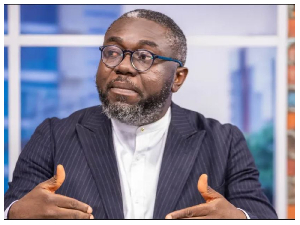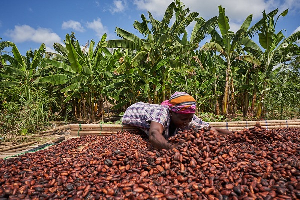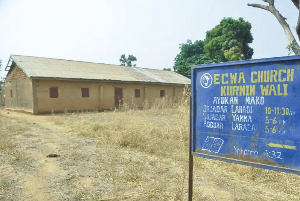Some people refer to the exodus of Ghanaians as ‘brain drain’; others refer to it as ‘brain gain.’ Whatever your position is on this, know that the success of our current collective effort as a nation to rebuild after two decades of regression will largely depend upon which of these two positions we subscribe to as a nation. If we look at the issue from the ‘brain drain’ standpoint, we are likely to consider Ghanaian expatriates the group that abandoned the nation during hard times, a stance that is usually accompanied by negative attitudes towards them. On the other hand, if we look at the issue from the ‘brain gain’ standpoint, we would be more willing to work with them in our rebuilding efforts.
For twenty years, Ghanaians living abroad have been lumped together as a group that abandoned the country during hard times. As a result of this outlook by Ghanaians at home, attitudes towards Ghanaians abroad, except their money, have deteriorated. We have seen similar friction between so-called local players and foreign players result in the performance of the Black Stars, for example. Their dismal performance over the last fifteen years or so is a reflection of what happens when a country begins to marginalise, rather than co-operate with her sons and daughters outside of her shores.
There is no question that ‘brain gain’ is the better, more progressive perspective. But before we look at the merits of that perspective, it is fair that we examine the alternative. In fairness, there is an element of brain drain in some of us. If the government educated a person free of charge up to, say, the graduate level, and that person left to earn a living elsewhere, that exodus represents an unfair loss to Ghana. In effect, Ghana would have developed a brain that just drained away. In fact, in many cases, those individuals who fit this category do little to aid our nation in spite of the fact that they doing very well for themselves.
There are, however, many that received minimal education in Ghana, toiled on their own in places like Agege before continuing their trip abroad. Once they hit their final destination, they worked to pay their way through college. There are many Ghanaians who fit this category, and who want to utilize their acquired expertise to help rebuild Ghana. How this group, along with their background, represents a brain drain will continue to beat many of us.
What makes this near hostile attitude towards Ghanaians abroad by Ghanaians at home nonsensical is the laughable suggestion that those who stayed did so by choice. When the Rawlings’ second era turned a marginal economy to a disastrously unbearable situation, few would have passed up the opportunity to flee the country. That makes staying at home anything but a case of patriotism. And for those who had the opportunity to leave, but elected to stay, they probably had more to gain by staying than to lose, which also makes their staying anything but a case of patriotism. Hence, Ghanaians at home are no more patriotic than their brothers and sisters abroad.
In fact, it could even be argued that Ghanaians who live ‘comfortably’ abroad are more patriotic when they sacrifice a lot of that ‘comfort’ to contribute whatever they can to help rebuild Ghana. While there are some who indeed refuse to even listen to issues concerning Ghana, many, such as Yaw Owusu of Ghana Cyber Group, Francis Akoto of Ghanawab, and Nana Otuo Acheampong of Ghana Review International, to name a few, utilized their own financial resources to set up media to disseminate information about Ghana, and mobilize resources in an effort to contribute to our nation’s rebuilding.
Call them partisans, but certain members of the North American chapter of the New Patriotic Party, for example, have spent at least five to ten thousand dollars each on their commitment to the development of our democratic process. Like the above-mentioned group, they spent money that could have gone to their parents or siblings at home, or to their families here. That these patriots have to be at the receiving end of prevalent undercurrents of hostility and jealousy from their folks at home because they live abroad flies in the face of the legendary Ghanaian hospitality that we keep bragging about.
Even when Ghanaians abroad are not utilizing their resources to help the nation as a whole, they remit money on a consistent basis to their relatives at home. Most of the time, the method of remittance is physical. That means the money ends up at home in its physical state either through an acquaintance coming home, or the sender coming home. The nation’s benefit here is indirect because the government does not realize the money in terms of foreign exchange earnings; the benefit lies in the increased purchasing power of the recipient, which boosts the economy.
The other means are electronic transfers. Here, the benefit to the nation is direct because the government realizes the amount in foreign exchange earnings. This is due to the fact that, while recipients of foreign transfers in, say, Nigeria can receive their monies in the same currency that it was remitted based on the sender’s request, their Ghanaian counterparts cannot due to the absence of that option. That is how, by president Kufuor’s own admission, “remittances from Ghanaians abroad represent the third leading source of foreign exchange, behind Gold and Cocoa, for Ghana.”
So here is the confusion. Ghanaians who have tried to send ideas, which by the way are direct products of the brain, are usually told to bring money because that is the most needed. Our folks at home are quick to tell you how plentiful the ideas are, and that they need money to implement them. In contrast, The Vice Chancellor of Kwame Nkrumah University of Science and Technology in Kumasi, during this year’s matriculation, insisted to the new students that it takes brains – or ideas – to develop a nation so they should stay at home after their education. Where do we stand as a nation?
It is important for us to understand that Ghana has an admirable history of producing university graduates. Many of those graduates, while educated to their teeth, unfortunately end up sitting in offices with broken down air-conditioning and elevators while they proudly hang their engineering degrees on the wall. Similarly, the graduates in Agriculture insist on office jobs, and leave the farming to our country folks who cultivate the same old way for centuries. I am proud here to say that my brother, Victor Nkrumah is one of the few exceptions to this rule about graduates in agriculture. He lives and works with farmers in the villages right now.
Most of the ideas sent home by Ghanaians abroad represent practical application of learned theories to real life situations. If one considers the dying need for the connection between theory and practical in Ghana today, and one becomes aware of how quickly these ideas are discarded upon arrival, one is left confused as to what to do next.
Historically, the son or daughter that traveled, is well received when he or she returns home. Usually, he or she brings ‘something’ home. That ‘something’ may be money, or an out-of-the-box idea that the family can use. All this changed during the past 20 years, and for a reason. The autocratic regime that Rawlings headed was threatened by the realization of a better way by Ghanaians abroad. If you saw how nations were run elsewhere, and you compared them to how ours was run at the time, you became more and more intolerant of how ours was run.
To this end, the government had an interest in diminishing the value of whatever the Ghanaian abroad had to offer. Once that marginalization had been established, the resulting friction will limit the influence that Ghanaians abroad had on those at home.
Now that we are back in the business of running our country based on the rule of law and respect for the democratic system, it is time to revert to our history of inclusion, and the hospitable reception of the son or daughter who traveled to another land. What that travelling son or daughter brings back may be what missing link there was between our dear nation and prosperity.















